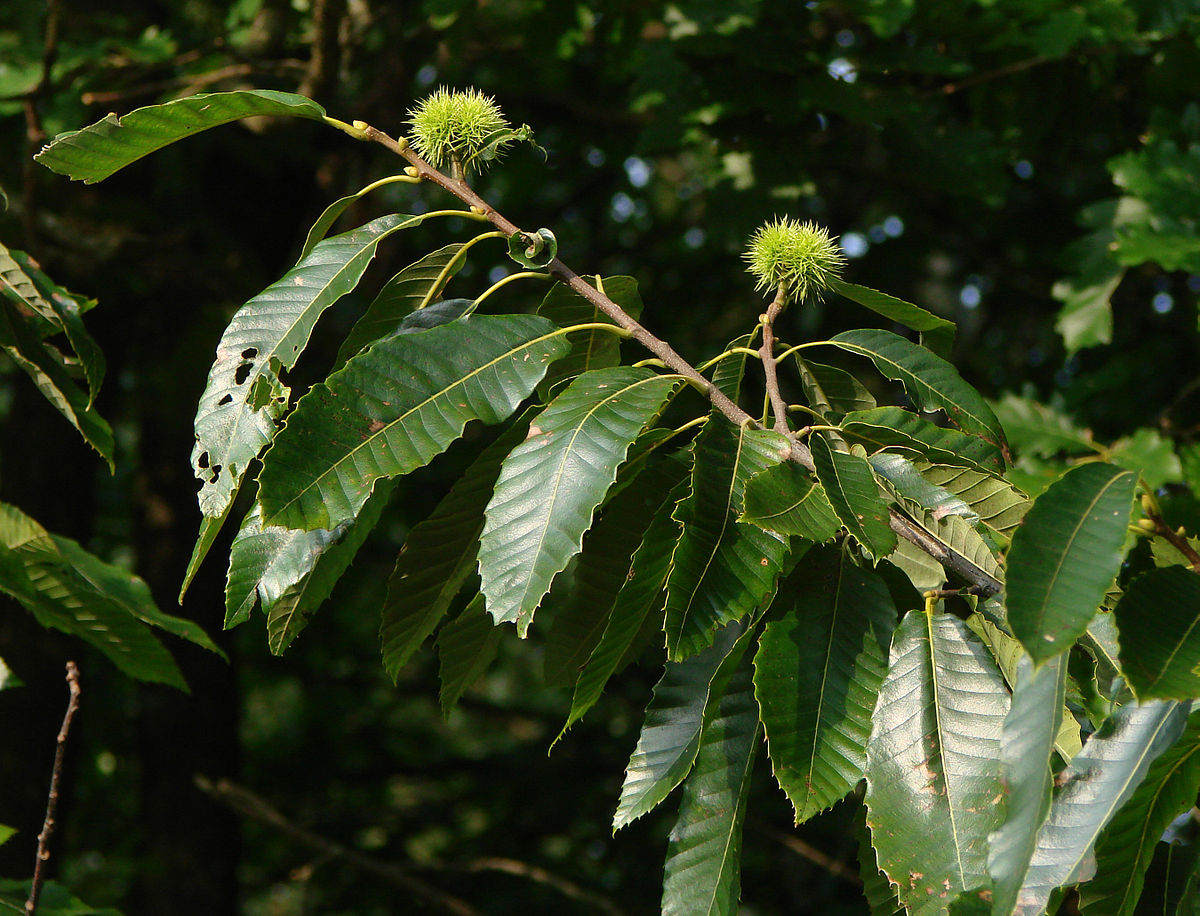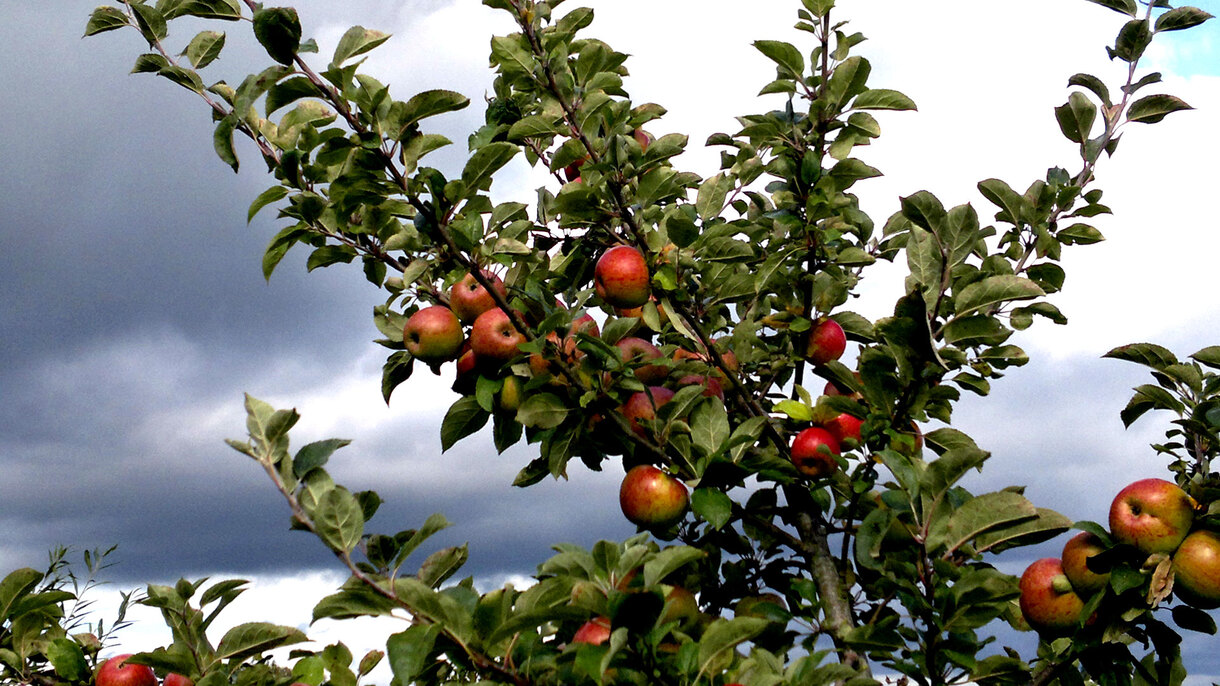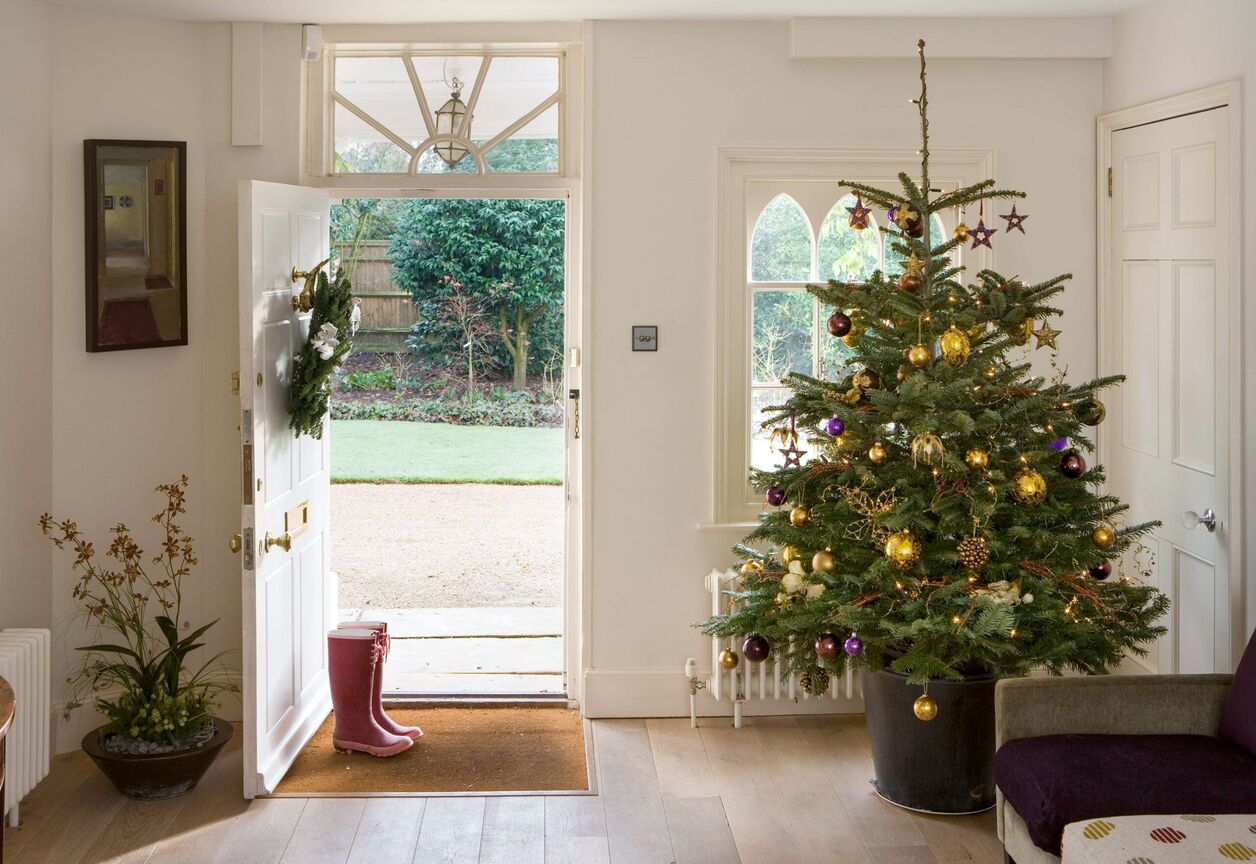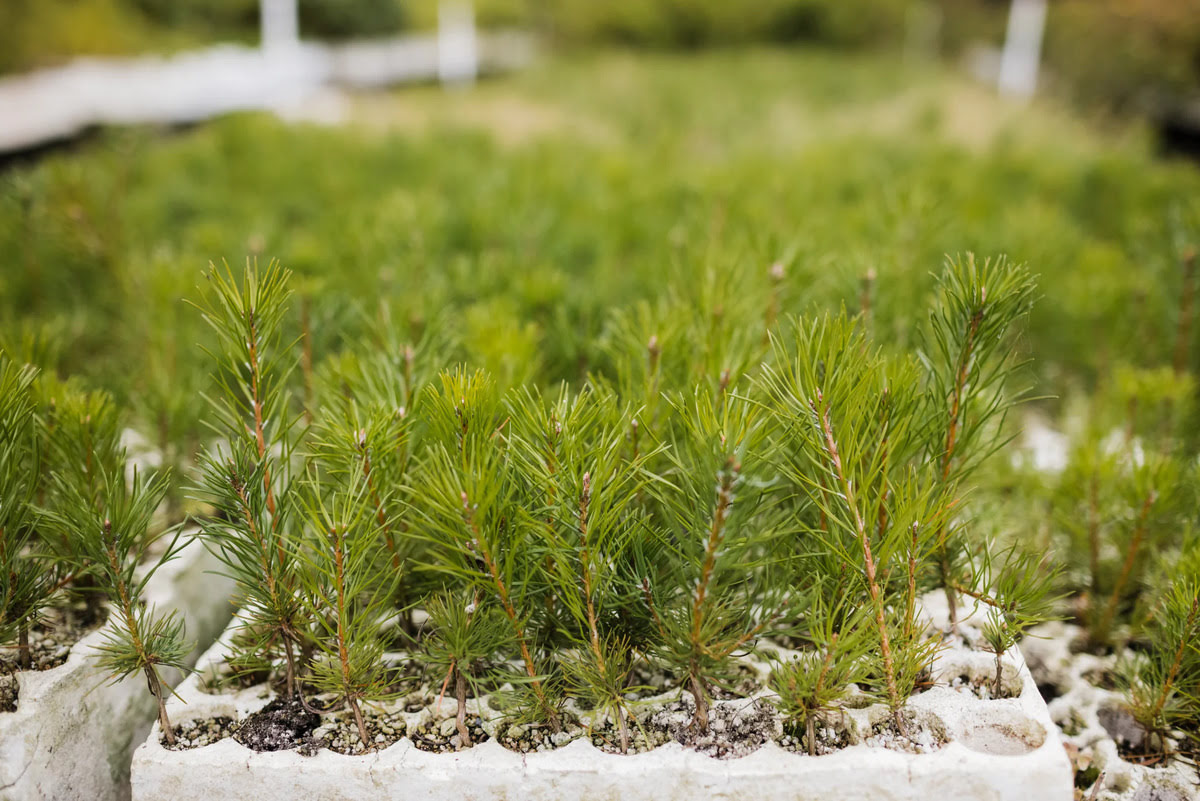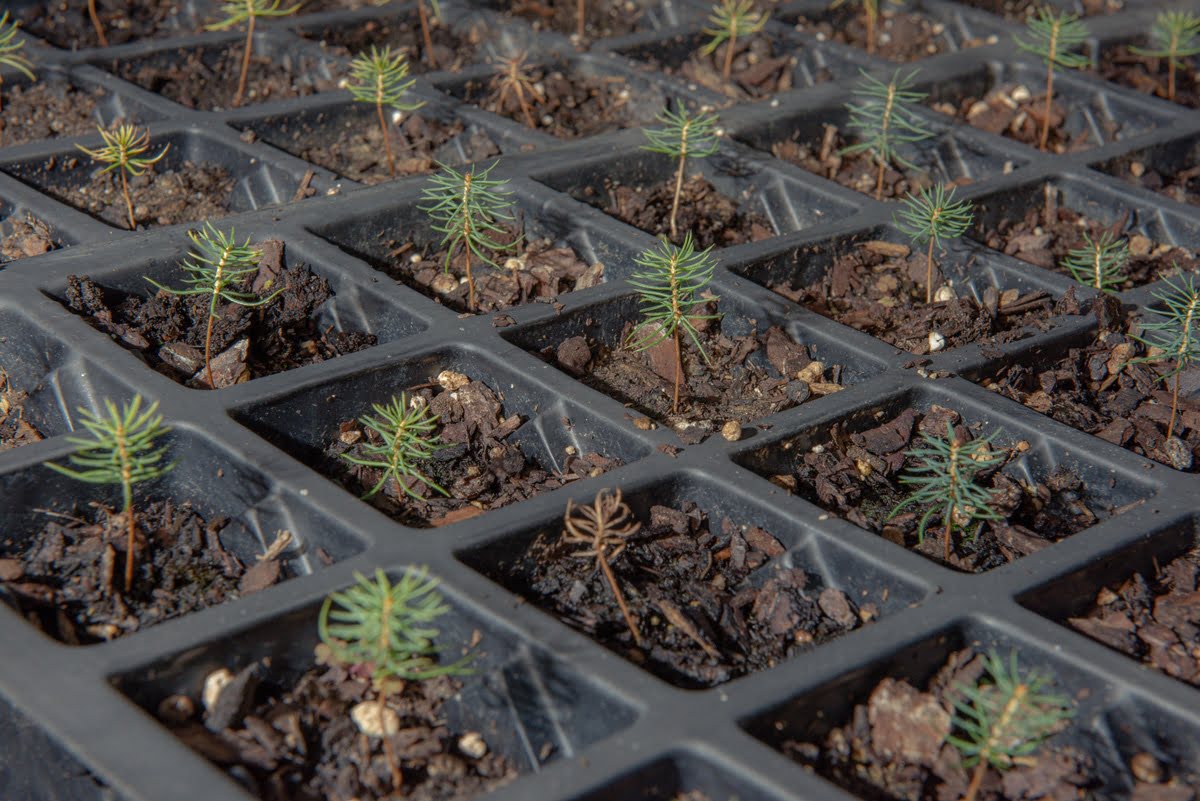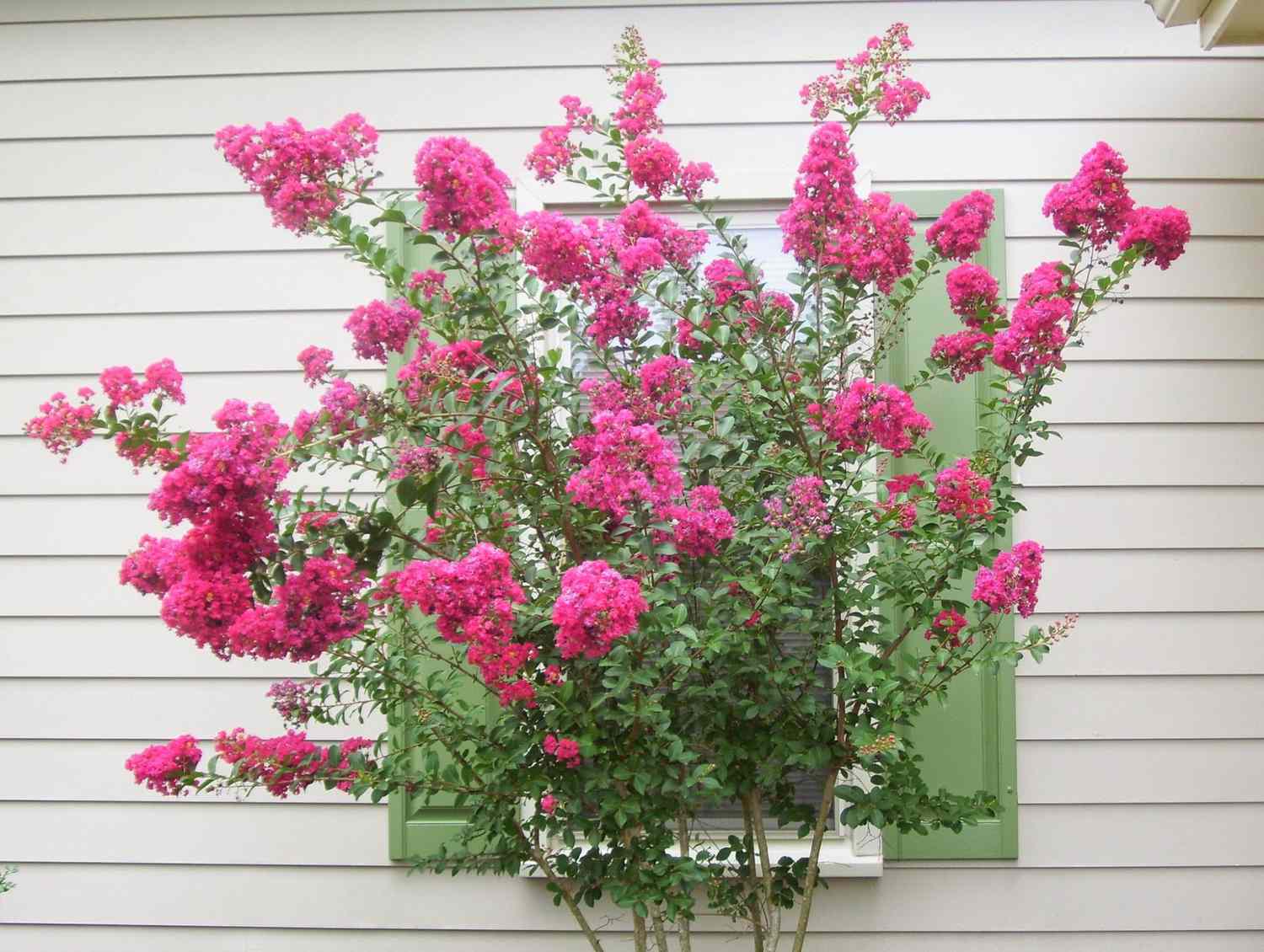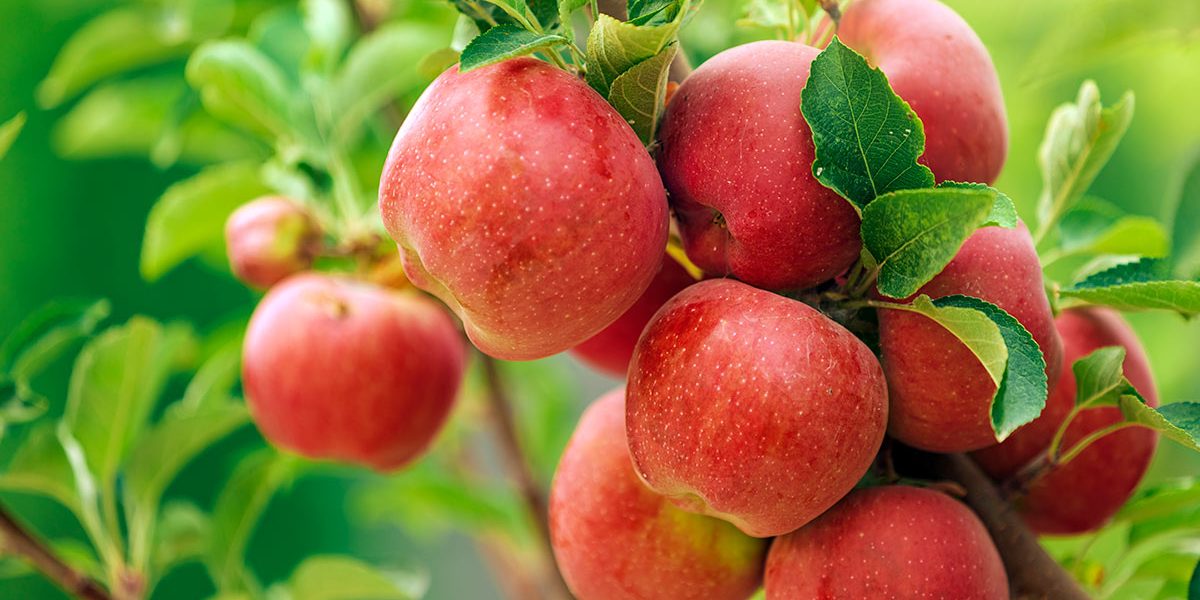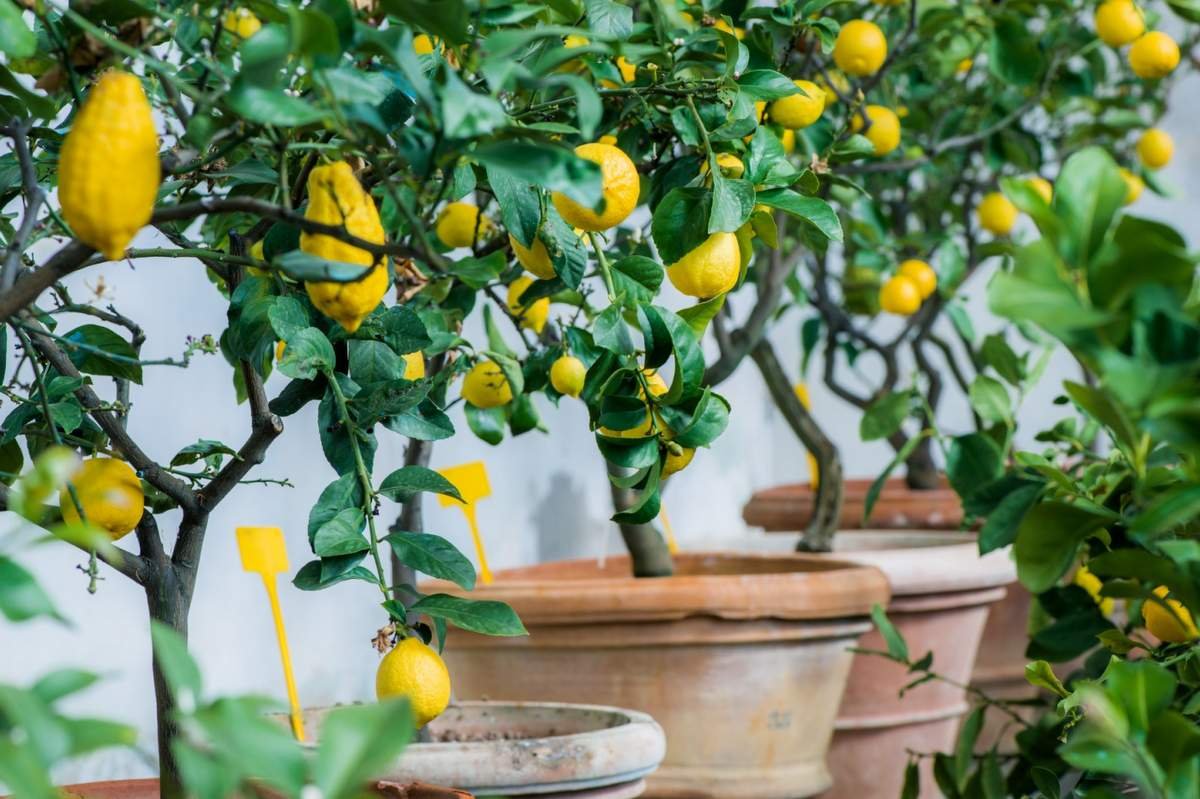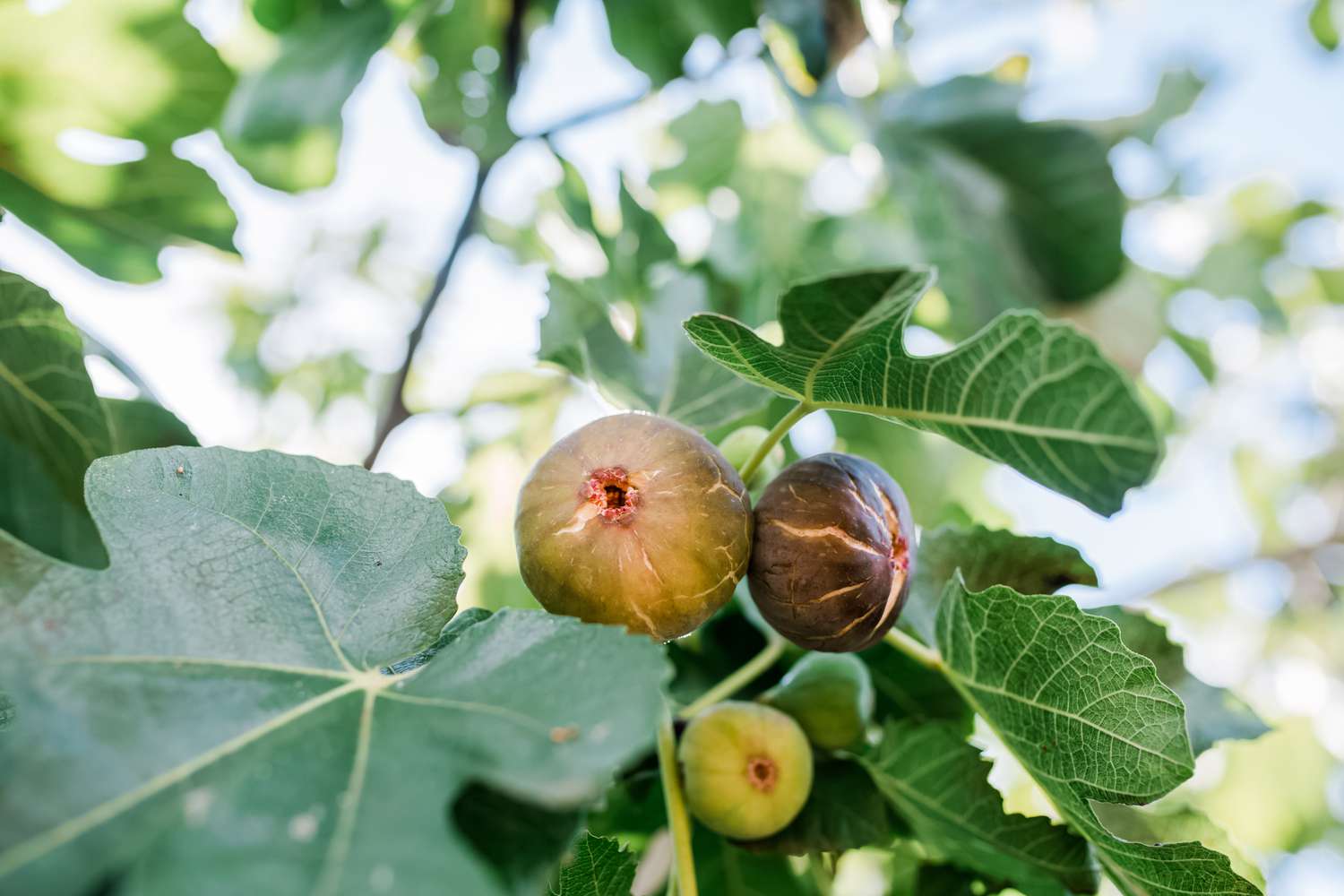Home>Reviews>Product Reviews>Where To Buy Blight-Resistant American Chestnut Trees
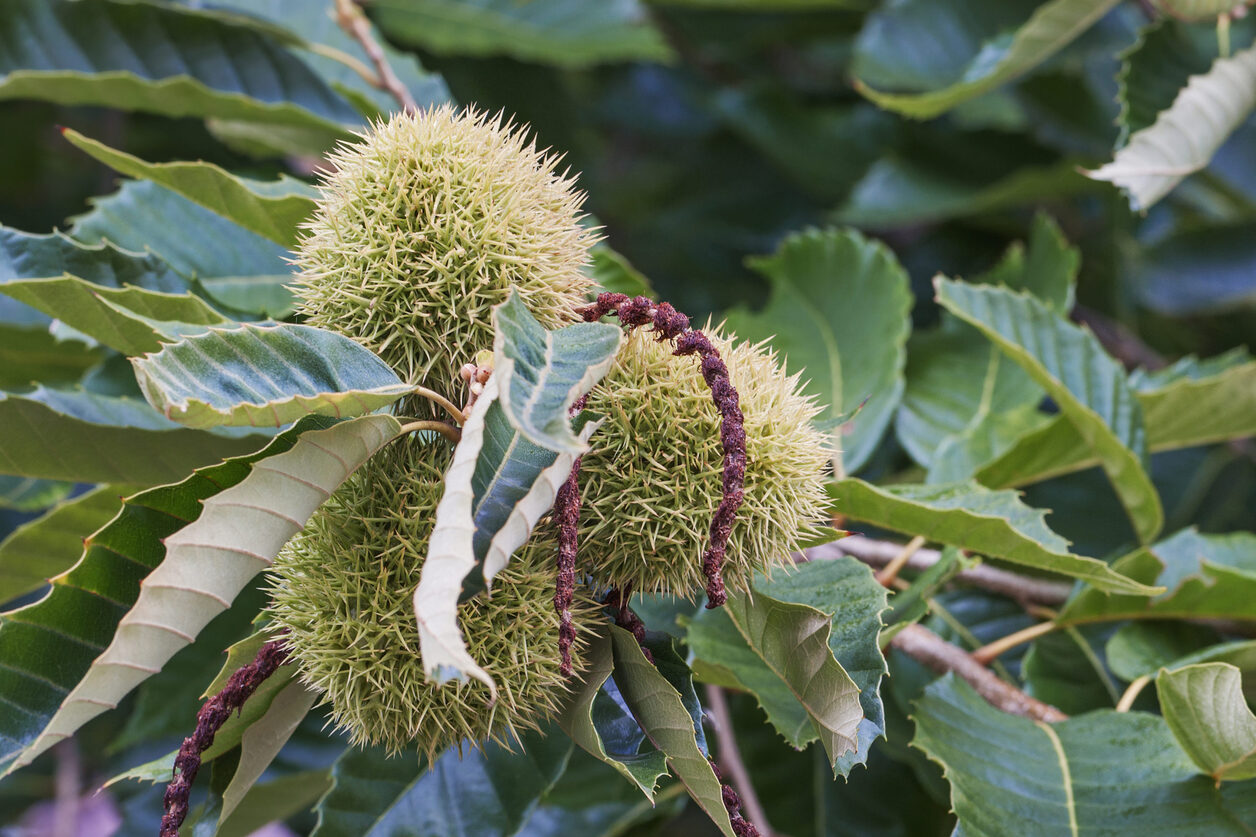

Product Reviews
Where To Buy Blight-Resistant American Chestnut Trees
Modified: January 22, 2024
Looking for product reviews on blight-resistant American chestnut trees? Discover where to buy the best ones to enhance your garden and protect this endangered species.
(Many of the links in this article redirect to a specific reviewed product. Your purchase of these products through affiliate links helps to generate commission for Chicagolandgardening.com, at no extra cost. Learn more)
Table of Contents
- Introduction
- What are blight-resistant American chestnut trees?
- Factors to consider before buying blight-resistant American chestnut trees
- Where to buy blight-resistant American chestnut trees
- Online nurseries and garden centers
- Local nurseries and garden centers
- American Chestnut Foundation (ACF)
- Seed banks and conservation organizations
- Conclusion
Introduction
The American chestnut tree (Castanea dentata) was once a dominant and iconic species in the forests of the eastern United States. However, a devastating fungal disease known as the chestnut blight, caused by the introduction of the fungus Cryphonectria parasitica, decimated the population of American chestnut trees in the early 20th century. The loss of these magnificent trees had far-reaching ecological, economic, and cultural impacts.
Over the years, efforts have been made to develop blight-resistant American chestnut trees. Through various breeding and genetic engineering techniques, researchers have successfully developed hybrid varieties that are largely resistant to the chestnut blight. These blight-resistant trees provide hope for the restoration of the American chestnut species and the revival of its ecological and cultural significance.
If you’re considering adding blight-resistant American chestnut trees to your landscape, there are a few factors you should consider before making a purchase. It’s important to understand the characteristics, care requirements, and potential benefits of these trees to ensure they will thrive in your specific environment.
Once you’ve done your research and made the decision to buy blight-resistant American chestnut trees, the next step is finding a reliable source from which to purchase them. Fortunately, there are several options available both online and locally.
What are blight-resistant American chestnut trees?
Blight-resistant American chestnut trees are hybrid varieties that have been bred or genetically modified to possess a high level of resistance against the chestnut blight fungus, Cryphonectria parasitica. These trees are the result of decades of research and breeding efforts by organizations such as the American Chestnut Foundation (ACF).
The hybridization process involves crossbreeding the American chestnut tree with other species, such as the Chinese chestnut (Castanea mollissima) or the Japanese chestnut (Castanea crenata), which have shown natural resistance to the chestnut blight. By incorporating the blight resistance genes from these species into the American chestnut genome, scientists have been able to produce trees that exhibit a strong resistance to the fungus.
It’s important to note that blight-resistant American chestnut trees are not genetically modified organisms (GMOs) in the traditional sense. While they have been genetically modified to some extent through hybridization, they do not contain genes from unrelated organisms. Instead, they carry genes from other chestnut species that are naturally resistant to the blight.
These blight-resistant trees typically exhibit characteristics similar to the American chestnut, such as their graceful form, broad leaves, and the iconic chestnuts they produce. They are typically fast-growing and can reach impressive heights of up to 100 feet or more when provided with the right conditions.
By planting blight-resistant American chestnut trees, you are not only contributing to the restoration of a once-dominant species but also supporting the greater biodiversity and ecosystem health of your local environment. These trees provide important habitat and food sources for numerous species of birds, mammals, and insects.
Furthermore, the cultural significance of the American chestnut cannot be overlooked. This tree played a vital role in the lives of early American settlers, providing valuable timber for buildings, furniture, and fuel, as well as a staple food source. Restoring the American chestnut to its former glory is not just a matter of ecological restoration but also a way to preserve our natural and cultural heritage.
Factors to consider before buying blight-resistant American chestnut trees
Before purchasing blight-resistant American chestnut trees, there are several important factors to consider. These factors will help ensure that the trees thrive in your specific environment and that you can provide the necessary care and maintenance for their long-term growth and survival.
1. Climate compatibility: American chestnut trees are typically well-suited to temperate regions of the United States with cool winters and moderate summers. However, it’s important to check the specific climate requirements of the blight-resistant variety you intend to purchase. Some hybrids may have adapted to a wider range of climate conditions, whereas others may be more specific in their environmental needs.
2. Soil conditions: American chestnut trees prefer well-drained, slightly acidic soil. Before buying, evaluate your soil’s pH level and drainage characteristics. If your soil is significantly alkaline or compacted, you may need to amend it to create a more suitable growing environment for the chestnut trees.
3. Space requirements: Blight-resistant American chestnut trees can grow to significant heights and widths, so it’s crucial to consider the available space in your landscape. Ensure that you have enough room to accommodate the mature size of the trees without interfering with other structures or nearby plants.
4. Sunlight exposure: American chestnut trees thrive in full sun, so make sure the planting location provides at least six hours of direct sunlight each day. Limited sun exposure may hamper the growth and overall health of the trees.
5. Disease resistance: While blight-resistant American chestnut trees are bred to withstand the chestnut blight, it is important to note that they may still be susceptible to other diseases or pests. Research the specific variety you plan to buy and inquire about its overall resistance to common chestnut tree ailments.
6. Maintenance requirements: Like any tree, blight-resistant American chestnut trees require regular care and maintenance. Consider the time and effort you are willing to invest in pruning, watering, fertilizing, and protecting the trees from potential threats such as deer browsing or extreme weather conditions.
By carefully considering these factors, you can ensure that you select blight-resistant American chestnut trees that are well-suited to your specific landscape and requirements. This will greatly increase their chances of thriving and contributing to the restoration and conservation of this iconic species.
Where to buy blight-resistant American chestnut trees
If you’re ready to incorporate blight-resistant American chestnut trees into your landscape, there are several options available for purchasing these trees. Whether you prefer online shopping, supporting local nurseries, or collaborating with conservation organizations, there are reliable sources to meet your needs.
1. Online nurseries and garden centers: Many online nurseries and garden centers offer a wide range of tree species, including blight-resistant American chestnut trees. With just a few clicks, you can browse through a variety of options, compare prices, and have the trees delivered right to your doorstep. Make sure to choose reputable sellers with positive customer reviews and consider the shipping costs and policies before making a purchase.
2. Local nurseries and garden centers: Visiting local nurseries and garden centers can be a great way to support your community and get expert advice tailored to your specific region. Check with nearby nurseries to see if they stock blight-resistant American chestnut trees. If they don’t have them in stock, they may be able to order them for you or provide information on when they will become available.
3. American Chestnut Foundation (ACF): The American Chestnut Foundation is a non-profit organization dedicated to the restoration of the American chestnut tree. They offer blight-resistant American chestnut trees for sale as part of their mission to reintroduce the species to its native range. Purchasing trees from the ACF not only guarantees you quality plants, but it also supports their ongoing research and conservation efforts.
4. Seed banks and conservation organizations: Some seed banks and conservation organizations specialize in preserving and distributing genetically diverse chestnut tree seeds or saplings. These organizations often prioritize the conservation of the American chestnut species and may offer blight-resistant varieties for sale. Research local or national seed banks and conservation organizations to see if they have blight-resistant American chestnut trees available for purchase.
When purchasing blight-resistant American chestnut trees, it is advisable to inquire about the specific hybrid variety, its provenance, and any certification it may have. This information will help ensure that you are getting genuine blight-resistant trees from reliable sources.
Restoring the American chestnut to its former glory requires the collective effort of individuals, organizations, and communities. By choosing a reputable source to buy blight-resistant American chestnut trees, you are not only enhancing the beauty of your landscape but also contributing to the conservation and revival of this iconic species.
Online nurseries and garden centers
When it comes to convenience and variety, online nurseries and garden centers are an excellent option for purchasing blight-resistant American chestnut trees. These platforms provide a wide selection of tree species, including blight-resistant hybrids, and offer the convenience of online shopping and doorstep delivery.
One of the key advantages of online nurseries and garden centers is the ability to browse through a diverse range of options from the comfort of your own home. These websites typically provide detailed product descriptions, including information about the blight-resistant qualities of the American chestnut trees they offer. This allows you to easily compare different varieties and choose the one that best suits your needs.
When buying from online nurseries and garden centers, it is important to select reputable sellers. Look for well-established businesses with positive customer reviews and ratings. Reading customer feedback can provide valuable insights into the quality of their products and customer service.
Before making a purchase, check the shipping policies and costs. Some online vendors offer free shipping, while others may charge a fee based on the size and weight of the trees. Ensure that the estimated delivery time aligns with your planting schedule to minimize the stress on the trees during transit.
When your trees arrive, follow the planting and care instructions provided by the online nursery or garden center. Some reputable sellers may even offer post-purchase support, allowing you to reach out with any questions or concerns you may have about your newly purchased blight-resistant American chestnut trees.
While online nurseries and garden centers offer convenience and a wide selection, it’s important to note that there may be limitations. For example, online purchasing may not be ideal if you prefer to inspect the trees in person before buying or if you have specific questions that require immediate assistance. In such cases, visiting a local nursery or garden center may be a better option.
Despite these limitations, online nurseries and garden centers remain a popular choice for purchasing blight-resistant American chestnut trees. Their extensive selection, convenience, and delivery options make them a convenient and accessible resource for individuals looking to contribute to the restoration and conservation of this iconic species.
Local nurseries and garden centers
When it comes to buying blight-resistant American chestnut trees, local nurseries and garden centers are an excellent option. These establishments provide the advantage of in-person shopping and the opportunity to receive expert advice specific to your region. Supporting local businesses also contributes to the growth and sustainability of your community.
Visiting a local nursery or garden center allows you to physically assess the quality and health of the blight-resistant American chestnut trees before making a purchase. You can inspect the trees for any signs of disease or stress and choose the ones that best fit your requirements, such as size and branching structure.
Furthermore, the knowledgeable staff at local nurseries and garden centers can offer valuable guidance on selecting and caring for blight-resistant American chestnut trees. They are familiar with the unique environmental conditions and challenges of your specific region and can recommend suitable varieties that are known to thrive in your area.
In some cases, local nurseries may not have blight-resistant American chestnut trees readily available. However, they may be able to order them for you or provide information on when they will be in stock. Establishing a relationship with a local nursery can be beneficial for long-term tree care and maintenance, as they can provide ongoing support and advice as your trees grow.
When purchasing from a local nursery or garden center, ask about the source of their blight-resistant American chestnut trees. It is important to ensure that they are procured from reputable growers or suppliers who specialize in hybrid varieties with proven resistance to the chestnut blight.
Supporting local businesses not only helps the local economy but also fosters a sense of community and connection. By purchasing blight-resistant American chestnut trees from local nurseries and garden centers, you contribute to the promotion of sustainable practices and support the expertise and knowledge of local professionals.
Remember to inquire about any guarantees or warranty offered by the nursery or garden center. Some establishments may provide replacement or refund policies in case the trees do not survive or thrive after planting.
Overall, local nurseries and garden centers offer a personalized and hands-on buying experience for blight-resistant American chestnut trees. They provide the opportunity to assess the quality of the trees, receive expert advice, and support local businesses, making them an excellent option for tree enthusiasts committed to the restoration and conservation of this iconic species.
American Chestnut Foundation (ACF)
The American Chestnut Foundation (ACF) is a non-profit organization dedicated to the restoration and conservation of the American chestnut tree. They have played a crucial role in the development of blight-resistant American chestnut trees and offer a reliable source for purchasing these trees.
The ACF conducts extensive research and breeding programs to develop blight-resistant varieties of the American chestnut tree. Their work involves selective breeding and genetic engineering techniques to incorporate resistance genes from other chestnut species into the American chestnut genome. The result is a range of hybrid trees that exhibit a high level of resistance against the chestnut blight fungus.
By purchasing blight-resistant American chestnut trees from the ACF, you not only receive high-quality trees but also support their ongoing research and conservation efforts. The revenue generated from tree sales is reinvested into the organization’s programs, allowing them to continue their mission of restoring the American chestnut to its native range.
When purchasing from the ACF, you can expect to receive trees that have been carefully selected and cultivated for their blight resistance and overall health. These trees have undergone rigorous testing and are certified by the ACF, ensuring their authenticity and genetic integrity.
The ACF offers various purchasing options, such as seedlings, saplings, or mature trees, depending on your specific needs and preferences. They may also provide detailed guidelines and recommendations for planting, care, and maintenance to ensure the success of your blight-resistant American chestnut trees.
Additionally, the ACF serves as a valuable resource for information and support. They have a network of dedicated volunteers and experts who can provide guidance as you embark on your journey of growing and nurturing blight-resistant American chestnut trees. Their wealth of knowledge and experience can help troubleshoot any challenges you may face along the way.
Engaging with the ACF not only allows you to contribute to the restoration of the American chestnut species but also provides opportunities for involvement in their programs and initiatives. You can join the ACF as a member, volunteer for local chapters, or participate in citizen science projects to aid in data collection and monitoring efforts.
Overall, the American Chestnut Foundation is a reputable and reliable source for purchasing blight-resistant American chestnut trees. By buying from them, you support their ongoing research and conservation efforts while obtaining high-quality trees that contribute to the restoration of this iconic species.
Seed banks and conservation organizations
Seed banks and conservation organizations play a vital role in preserving and distributing genetically diverse plant species, including the American chestnut. These organizations often offer blight-resistant American chestnut trees for sale, providing a reliable source for obtaining these trees while supporting conservation efforts.
Seed banks collect, store, and maintain a wide range of plant seeds to safeguard genetic diversity. Some seed banks specialize in preserving and distributing chestnut tree seeds, including those of blight-resistant varieties. These organizations prioritize the conservation of the American chestnut species and ensure the availability of genetically diverse trees for restoration efforts.
Conservation organizations, such as local and national chestnut tree conservation groups, also play a crucial role in protecting and restoring the American chestnut. These organizations often have their own nurseries or collaborate with other nurseries to produce and sell blight-resistant American chestnut trees as part of their conservation programs.
When purchasing blight-resistant American chestnut trees from seed banks or conservation organizations, you can have confidence in the genetic quality and authenticity of the trees. These trees are typically sourced from reputable growers or breeders who specialize in developing and maintaining blight-resistant varieties.
Supporting seed banks and conservation organizations not only ensures the availability of blight-resistant American chestnut trees but also contributes to the funding and continuation of vital conservation efforts. The revenue generated from tree sales is often reinvested into ongoing research, community outreach, and educational programs related to the preservation and restoration of the American chestnut.
When purchasing from seed banks or conservation organizations, it is important to inquire about the specific blight-resistant varieties available for sale. Different organizations may offer different hybrids or select their trees based on regional adaptability. This information can help you select the most suitable trees for your specific location.
Moreover, these organizations often provide valuable educational resources and guidance on planting and caring for blight-resistant American chestnut trees. They can offer insights into local growing conditions, provide recommendations for tree maintenance, and assist with any questions or concerns you may have along the way.
By purchasing blight-resistant American chestnut trees from seed banks and conservation organizations, you not only obtain trees with proven blight resistance but also contribute to the conservation and preservation of the American chestnut species. Your purchase supports ongoing research, restoration projects, and the overall sustainability of these organizations’ efforts to restore the once-dominant American chestnut to its rightful place in our forests.
Conclusion
Adding blight-resistant American chestnut trees to your landscape is a meaningful way to contribute to the restoration and conservation of this iconic species. These trees, developed through years of research and breeding efforts, offer hope for the revival of the American chestnut and the reestablishment of its ecological and cultural significance.
Before purchasing blight-resistant American chestnut trees, carefully consider factors such as climate compatibility, soil conditions, space requirements, sunlight exposure, disease resistance, and maintenance requirements. By choosing trees that are well-suited to your environment and ensuring you can provide the necessary care, you increase their chances of thriving and making a positive impact.
There are various sources from which you can buy blight-resistant American chestnut trees. Online nurseries and garden centers provide convenience and a wide selection, while local nurseries and garden centers offer the advantage of in-person shopping and expert advice tailored to your region. The American Chestnut Foundation (ACF) provides reliable sources and supports ongoing research and conservation efforts. Seed banks and conservation organizations are also valuable options, as they prioritize preserving diverse genetics and contribute directly to the conservation of the American chestnut species.
The restoration of the American chestnut requires the collective effort of individuals, organizations, and communities. By purchasing blight-resistant American chestnut trees from reputable sources, you actively participate in this restoration process. Your support not only ensures the availability and genetic diversity of these trees but also contributes to innovative research, conservation initiatives, and the preservation of our natural and cultural heritage.
So, whether you choose to plant one blight-resistant American chestnut tree or create an entire grove, your actions can make a difference. By nurturing these remarkable trees back to their former glory, you help restore the ecological balance, support wildlife habitat, and honor the legacy of the majestic American chestnut tree.
